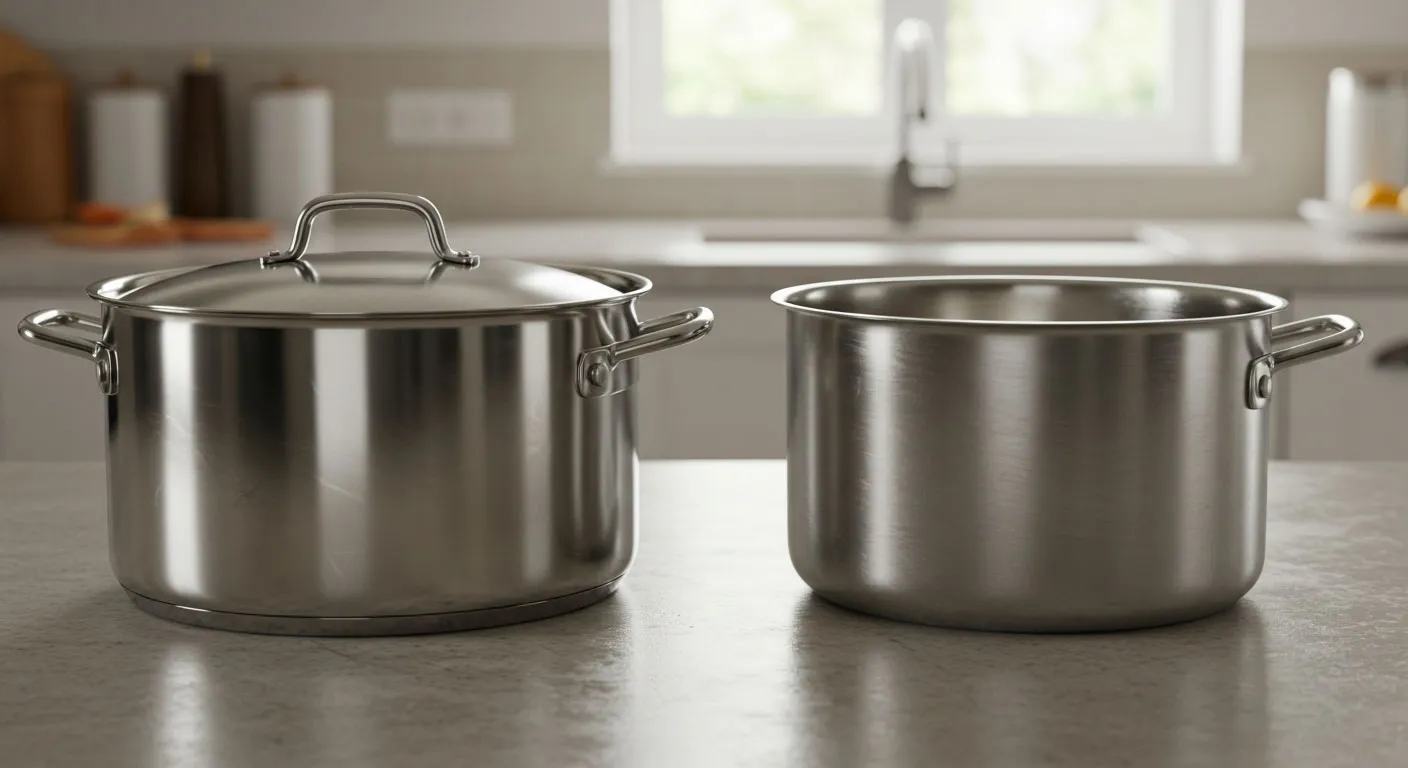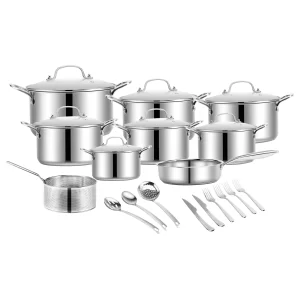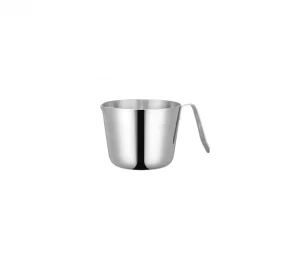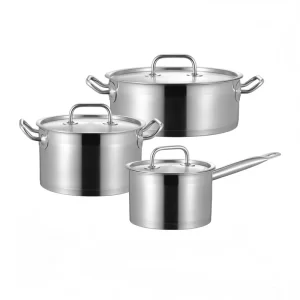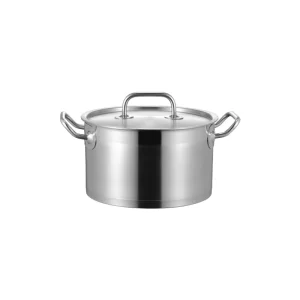Where durability, safety, and long-term value are concerned, stainless steel stock pots excel over aluminum. They are more resistant to corrosion, non-reactive with acidic foods, and keep their appearance and performance even with much use.
In the kitchen, a good pot is essential. Many people are torn when it comes to the wide variety of pots and pans available on the market: Is it better to choose aluminum or stainless steel? Today, we are going to make a comprehensive comparison of these two common stock pot materials, this comparison focuses on Chances – a manufacturer specializing in the production of customized stainless steel stock pots and pans, accumulating many years of experience in providing high-quality stainless steel pots and pans solutions for customers around the world, to effectively help you make an informed choice.
Table of Contents
ToggleThermal Conductivity
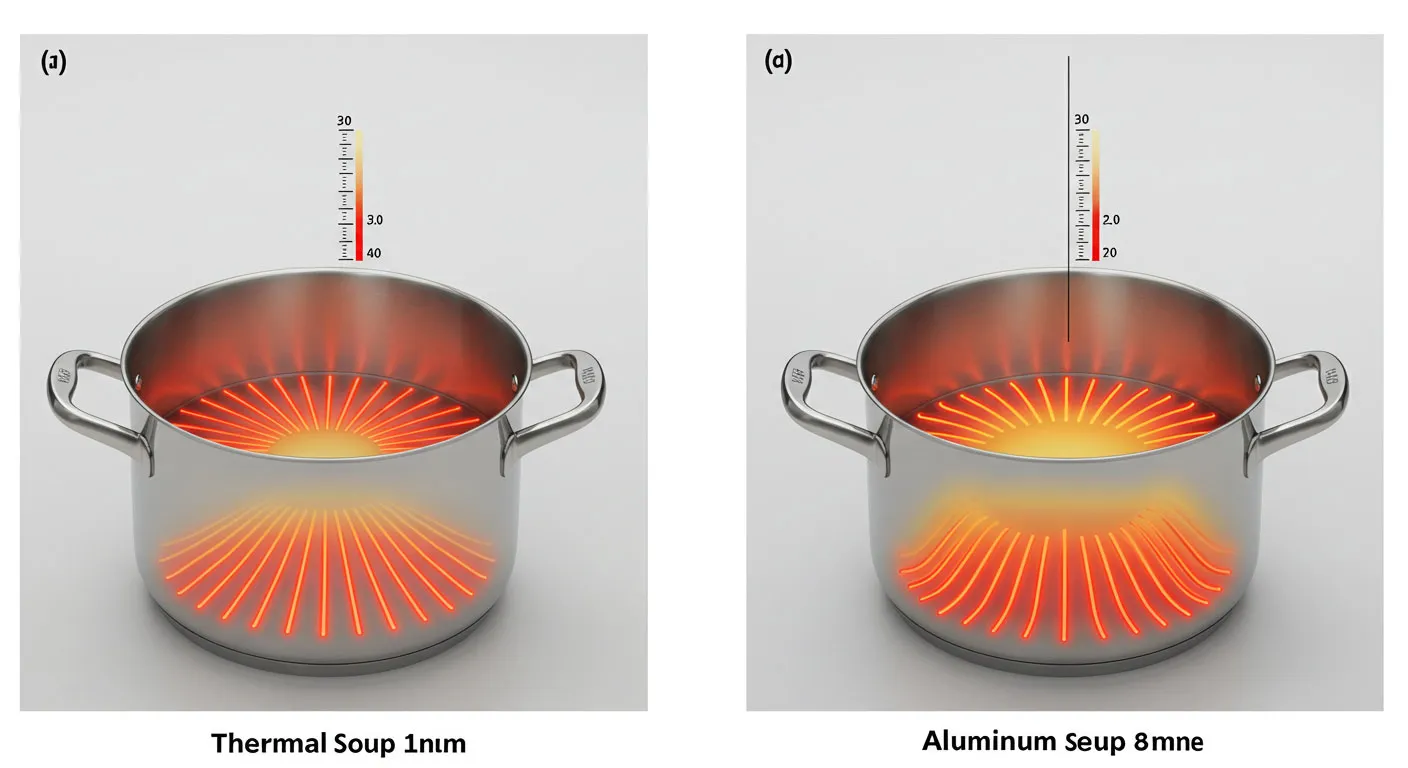
Aluminum Stock Pot Heats Quickly and Evenly
Aluminum has excellent thermal conductivity and can heat up quickly and evenly without localized high-temperature problems. When aluminum pots are used for stews and soups, the heating block can effectively save energy and time.
Stainless Steel Stock Pot: Slower to Heat, but More Stable with Multi-Ply Base
Aluminum has excellent thermal conductivity, conducts heat quickly and evenly, and is not prone to localized high-temperature problems. When aluminum pots are used for stews and soups, the ideal temperature can be reached faster, saving energy and time.
Durability and Service Life
Aluminum Stock Pot: Lightweight but Prone to Wear
Aluminum is a soft material, easy to scratch, deform, long-term use may result in an oxidation layer or pits. Although anodizing can improve the surface hardness, the overall durability is still not as good as stainless steel.
Stainless Steel Stock Pot: Long-Lasting, Scratch-Resistant, and Durable
Stainless steel is corrosion and oxidation-resistant, hard and durable, and not easily scratched or dented. The food-grade 304 or 316 stainless steel is treated with a rigorous process that keeps it bright and shiny over time.
Food Safety and Health
Aluminum Stock Pot: Risk of Reactivity with Acidic Ingredients
Untreated aluminium saucepans may react with acidic or alkaline ingredients to release aluminium ions, which may have health effects when ingested over a long time. Most modern aluminium saucepans are treated with surface treatment (e.g., non-stick coating, anodic oxide layer), but there are still safety hazards.
Stainless Steel Stock Pot: Non-Reactive and Food-Grade Safe
Food-grade stainless steel is stable, acid and alkali resistant, and does not have chemical reactions with ingredients. After precision grinding and polishing, it can ensure that the ingredients will not be contaminated during the stewing process, and there are fewer safety hazards.
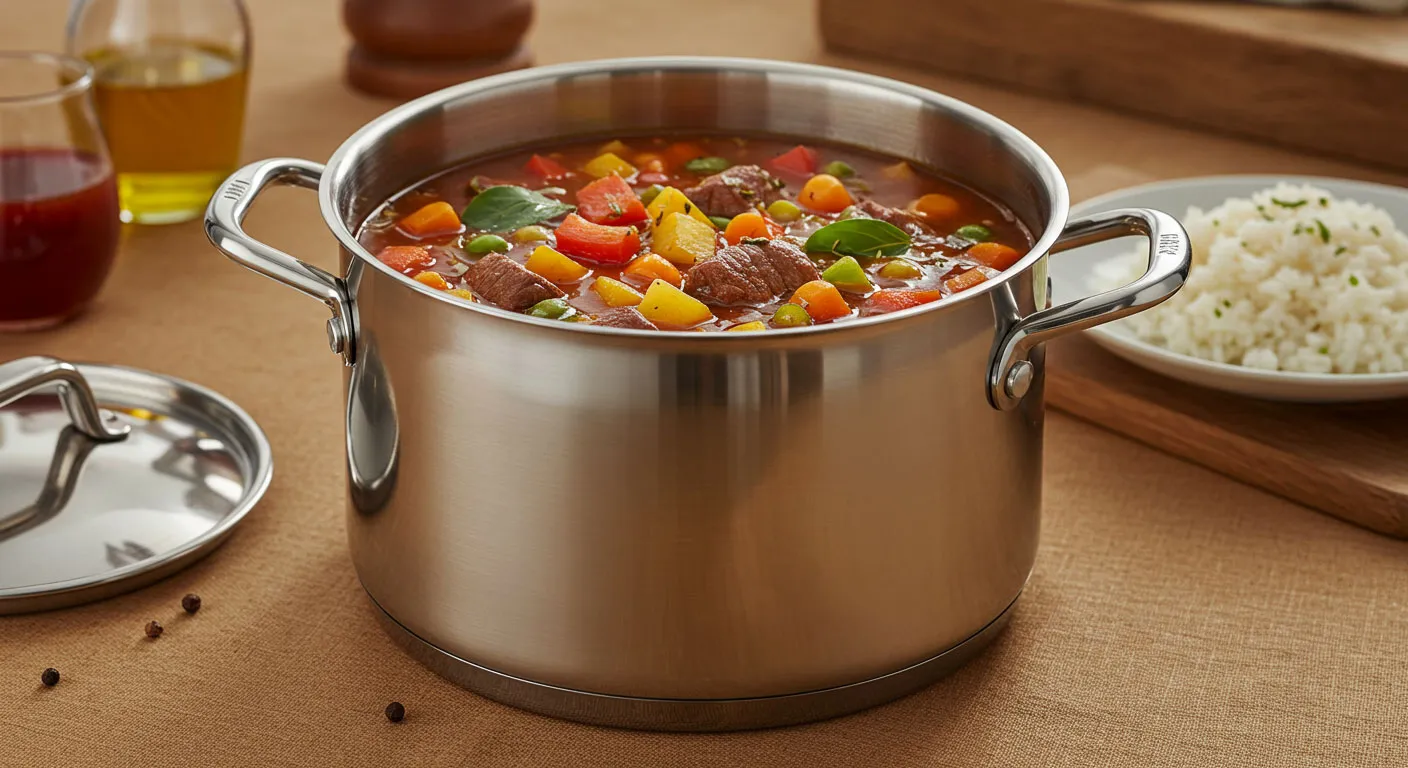
Weight and Operating Feel
Aluminum Stock Pot: Easy to Lift and Clean
Aluminum density is small, lightweight, suitable for the elderly or weak wrist strength of the crowd to use, making moving and cleaning more labor-saving.
Stainless Steel Stock Pot: Stable, Heavy-Duty, and Professional Feel
Stainless steel is heavier, especially the high-quality products with composite bottoms, which are calm and thick, with a solid feel. Strong solidity, so it is not easy to shake in the stewing process, more professional.
Price and Cost-effective
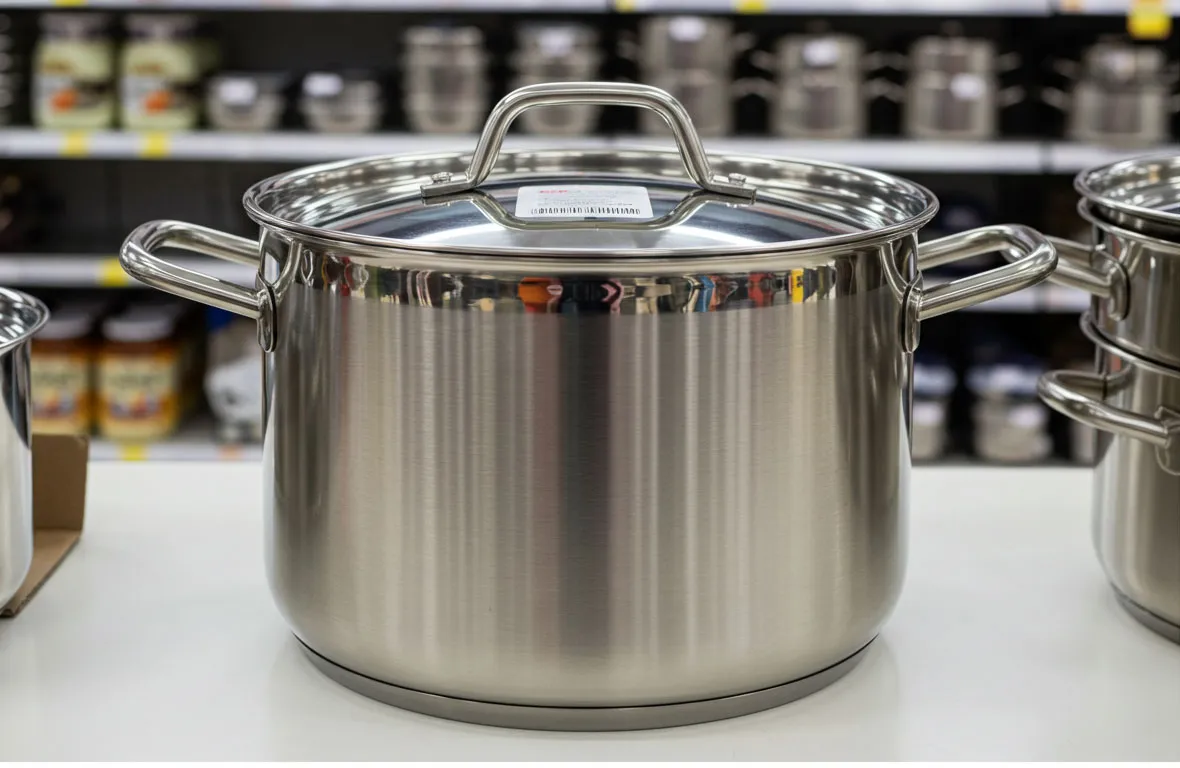
Aluminum Stock Pot: Budget-Friendly for Occasional Use
Aluminum pots of raw materials and production costs are low, the market price is generally friendly, suitable for consumers with a limited budget, or only for temporary use.
Stainless Steel Stock Pot: High Cost-Effectiveness for Long-Term Daily Use
Stainless steel pots and pans are relatively expensive, but considering their durability, food safety, and overall performance, they are instead extremely cost-effective for those who need to use their pots and pans at high frequency and high temperatures.

Conclusion: Why Stainless Steel Stock Pots Offer Greater Long-Term Value
Comparing the two, if you are looking for lightness, affordability, and simplicity in daily use, choosing aluminium pots and pans will suffice. However, if durability, food safety and long-term investment value are more important to you, then stainless steel stock pots are definitely more suitable for you, and Chances, a manufacturer specialising in customised and wholesale stainless steel stock pots, is able to provide you with a more tailor-made and durable product that will take your kitchen equipment to the next level.
After reading today’s comparison, which material do you prefer for your stock pot? Feel free to leave a comment to share your opinion!

